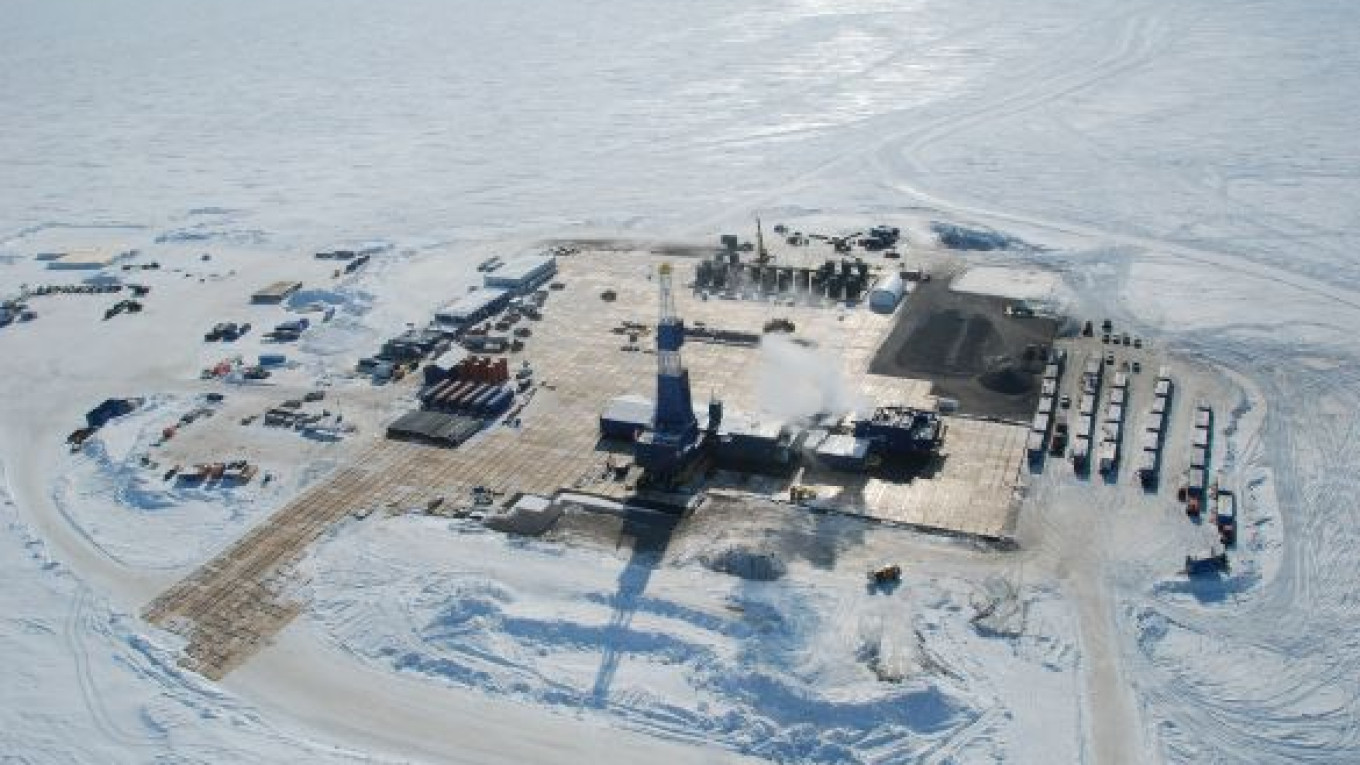ANCHORAGE, Alaska? — ExxonMobil and Rosneft signed an agreement that will give the U.S. company exploration access to an additional 606,000 square kilometers in the Russian Arctic.
A separate agreement will give Rosneft the opportunity to acquire a 25 percent interest in the Point Thompson unit on Alaska's North Slope.
The companies also said late Wednesday that they would study a potential liquid natural gas project in the Russian Far East.
The agreements were announced on the website of Irving, Texas-based ExxonMobil. Rosneft president Igor Sechin and ExxonMobil Exploration president Stephen Greenlee signed the agreements in Moscow in the presence of President Vladimir Putin.
The agreements will give Exxon exploration access to seven new blocks in the Chukchi Sea, Laptev Sea and Kara Sea.
"The agreements signed today bring the already unprecedented scale of the Rosneft and ExxonMobil partnership up to a completely new level," Sechin said in the announcement. "The acreage in the Russian Arctic subject to geological exploration and subsequent development increased nearly sixfold."
Participation in Point Thomson, Sechin said, would increase Rosneft's access to the latest gas and condensate field development technologies used in harsh conditions.
Point Thomson contains about 25 percent of the known gas resource base in Alaska's North Slope, the companies said.
The Point Thomson unit is 100 kilometers east of Prudhoe Bay and 35 kilometers east of the trans-Alaska oil pipeline. Alaska officials have said Point Thompson's importance transcends field development because it's the first project that will connect the trans-Alaska pipeline to eastern North Slope development.
Point Thomson is considered primarily a natural gas field and is estimated to contain 8 trillion cubic feet of natural gas, about 300 million barrels of gas condensate liquids, and traditional crude oil. Its development is considered critical to development of an Alaska natural gas pipeline.
The state of Alaska moved to terminate leases at Point Thomson after concluding that Exxon and other companies were not taking adequate steps to develop them. However, after litigation, the state last year reached a settlement that called for development of the field.
The U.S. Army Corps of Engineers in October issued a permit allowing ExxonMobil and PTE Pipeline to fill 108 hectares of North Slope waters and tundra wetlands to construct a drilling project.
The ExxonMobil agreement with Rosneft on LNG development includes possible construction of a facility in the Russian Far East. The companies said they would form a working group that will study the viability of an LNG project.
Related articles:
A Message from The Moscow Times:
Dear readers,
We are facing unprecedented challenges. Russia's Prosecutor General's Office has designated The Moscow Times as an "undesirable" organization, criminalizing our work and putting our staff at risk of prosecution. This follows our earlier unjust labeling as a "foreign agent."
These actions are direct attempts to silence independent journalism in Russia. The authorities claim our work "discredits the decisions of the Russian leadership." We see things differently: we strive to provide accurate, unbiased reporting on Russia.
We, the journalists of The Moscow Times, refuse to be silenced. But to continue our work, we need your help.
Your support, no matter how small, makes a world of difference. If you can, please support us monthly starting from just $2. It's quick to set up, and every contribution makes a significant impact.
By supporting The Moscow Times, you're defending open, independent journalism in the face of repression. Thank you for standing with us.
Remind me later.


